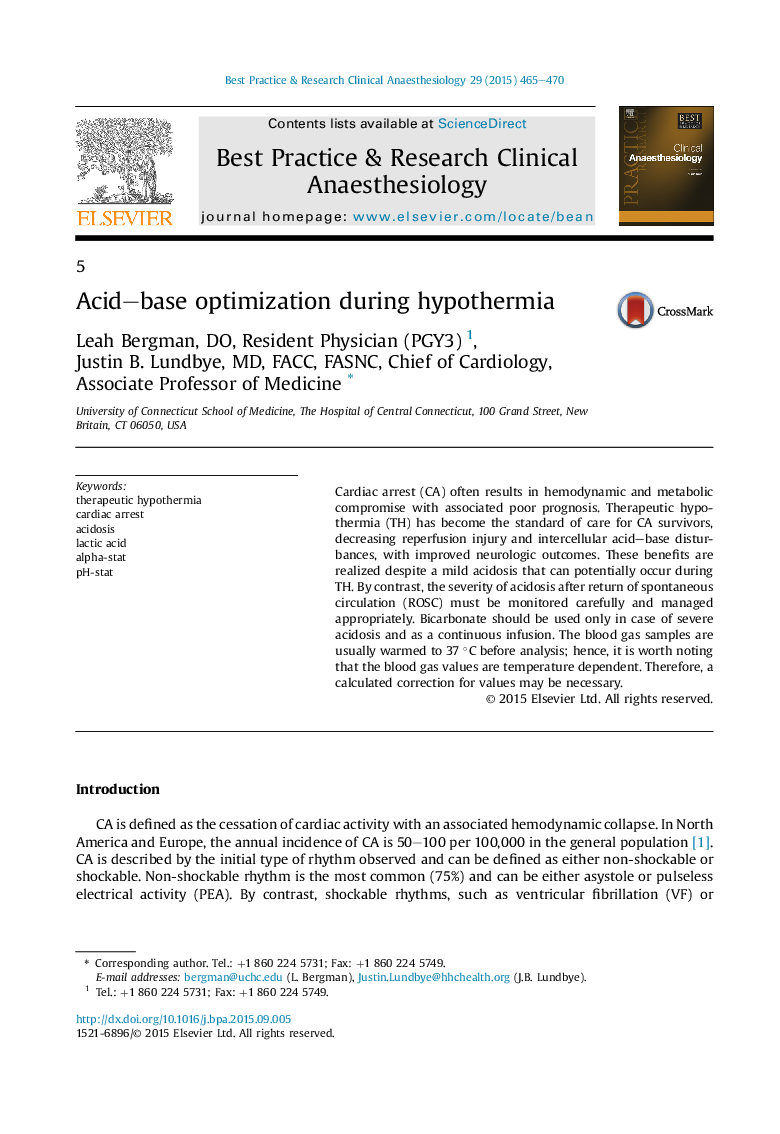| Article ID | Journal | Published Year | Pages | File Type |
|---|---|---|---|---|
| 2748344 | Best Practice & Research Clinical Anaesthesiology | 2015 | 6 Pages |
Cardiac arrest (CA) often results in hemodynamic and metabolic compromise with associated poor prognosis. Therapeutic hypothermia (TH) has become the standard of care for CA survivors, decreasing reperfusion injury and intercellular acid–base disturbances, with improved neurologic outcomes. These benefits are realized despite a mild acidosis that can potentially occur during TH. By contrast, the severity of acidosis after return of spontaneous circulation (ROSC) must be monitored carefully and managed appropriately. Bicarbonate should be used only in case of severe acidosis and as a continuous infusion. The blood gas samples are usually warmed to 37 °C before analysis; hence, it is worth noting that the blood gas values are temperature dependent. Therefore, a calculated correction for values may be necessary.
